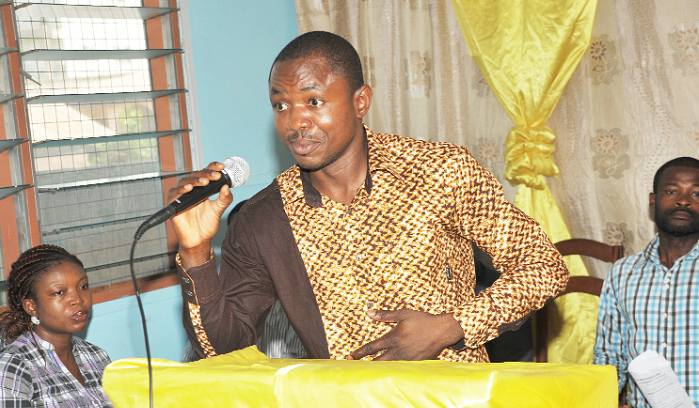
Set up infectious disease centres
The Ghana Medical Association (GMA) has called for the establishment of at least two national infectious disease centres to facilitate prompt diagnosis of diseases, health service delivery, research and teaching.
The association proposed that one of the centres should be cited in the southern sector while the other should be located in the northern sector.
In an interview, the Assistant General Secretary of the GMA, Dr Titus Beyuo, said what the association was calling for was a World Health Organisation (WHO) standard infectious disease centre which would be on call throughout the year.
He stated that during the Ebola crisis in 2015/2016 temporary sheds were built but those could not withstand the harsh weather conditions.
A permanent centre, which is expected to be constructed on a parcel of land behind the Korle Bu Fevers Unit in Accra, he said, is yet to be built.
Explaining a statement signed together with the President of the GMA, Dr Frank Ankobea, Dr Beyuo said such infectious disease centres should be built as a research centre designed specifically for contagious diseases.
According to him, those infectious disease centres should be hospitals which would be manned every day by specialised health personnel who would be on hand to deal with the outbreak of contagious diseases.
Statement
The GMA statement also condemned the manner in which the lives of President Nana Addo Dankwa Akufo-Addo and other citizens were endangered by their visit to Kumasi Academy without the necessary measures being instituted.
The association underscored the need for due diligence at all times, including consultations with all needed professionals on important occasions, to forestall any recurrence.
The association commended the professionalism exhibited by health personnel in the Public Health Division of the Ghana Health Service (GHS) and all collaborating agencies in bringing the outbreak under control.
It called for the existing protocols and channels of communication during such outbreaks to be adhered to by all at all times.
The association also called on politicians and the media to be circumspect in the handling of technical issues and allow professionals to, as much as possible, handle such matters.
It said the communication of conflicting positions during such emergencies fueled panic and unnecessary anxiety, which hampered scientific work.
PSGH
In a related development, the Pharmaceutical Society of Ghana (PSGH) has expressed concern on the recent outbreak of H1N1 Influenza at the Kumasi Academy (KUMACA) that claimed the lives of four students.
The PSGH also expressed concern about the reports of bacterial meningitis at the Koforidua Secondary Technical School.
A statement signed by Mr Benjamin Botwe, the President of the PSGH, urged pharmacists in community practice to be on the lookout for flu-like signs and symptoms that would help in early detection for H1N1 infection.
The PSGH said the H1N1 virus spread from person to person through airborne droplets expelled from the respiratory tract during talking, coughing or sneezing.
Fever, cough, sore throat, headache, chills and fatigue, diarrhoea and vomiting are the symptoms of the acute respiratory illness are some of the symptoms of the virus.
The PSGH also urged members to look out for cerebrospinal meningitis (CSM) as the harmattan season approached, and promptly refer suspected cases for treatment.
It encouraged pharmacists to support the national effort by observing and documenting the evidence of suspected cases to the disease control offices in their operational areas in order to prevent the diseases through vaccination.
Writer's email:
